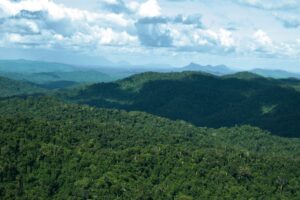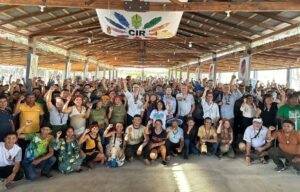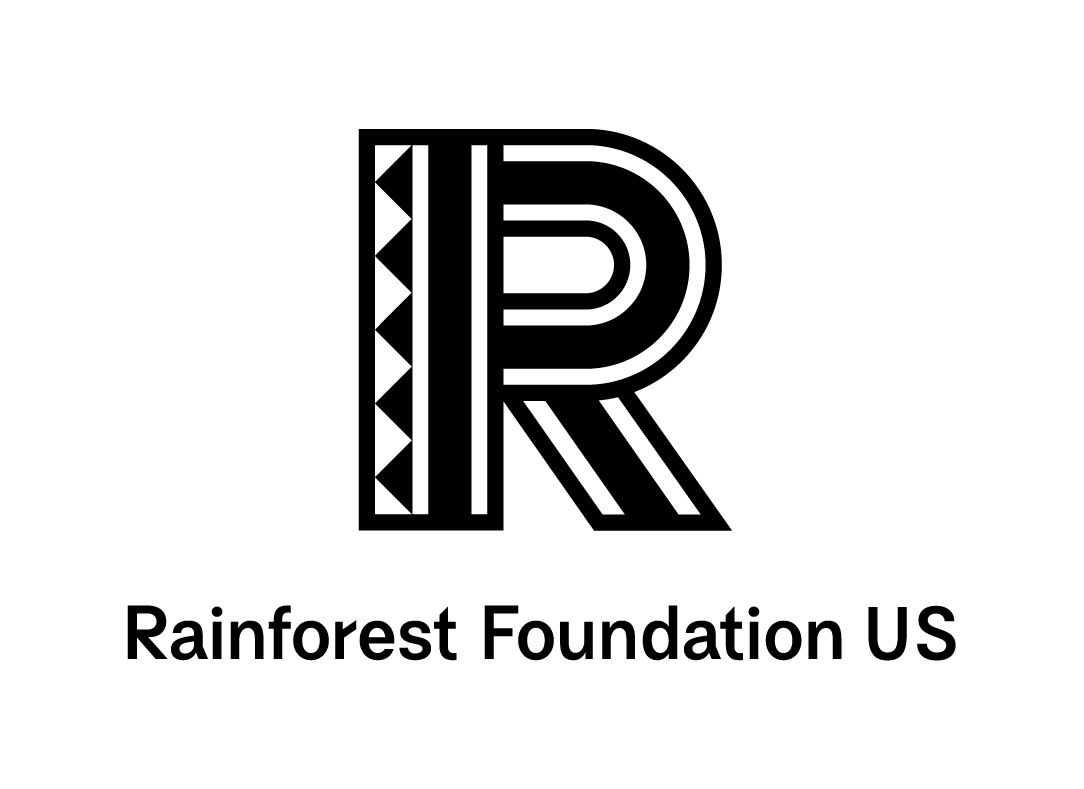- RFUS celebrates a major victory as 20 Indigenous communities in the Peruvian Amazon received land titles.
- Indigenous partner organizations AIDESEP, ORPIO, and others joined community leaders in the Loreto region to celebrate the delivery of the titles.
- Land titles are the most effective way to reduce deforestation in Indigenous peoples’ territory, resulting in a 66% reduction in forest cover loss.
On May 21, twenty communities in the Peruvian Amazon received long-awaited legal titles to their traditional lands, marking a significant victory in the struggle for Indigenous peoples’ land rights and environmental protection.
Encompassing approximately 75,000 acres, an area three times the size of Manhattan, the titles were delivered during a well-attended ceremony in the Huitoto Murui Indigenous community of Centro Arenal, in the state of Loreto. Indigenous leaders traveled from remote rivers that feed into the Amazon to receive their titles in person. Local and state officials also attended.
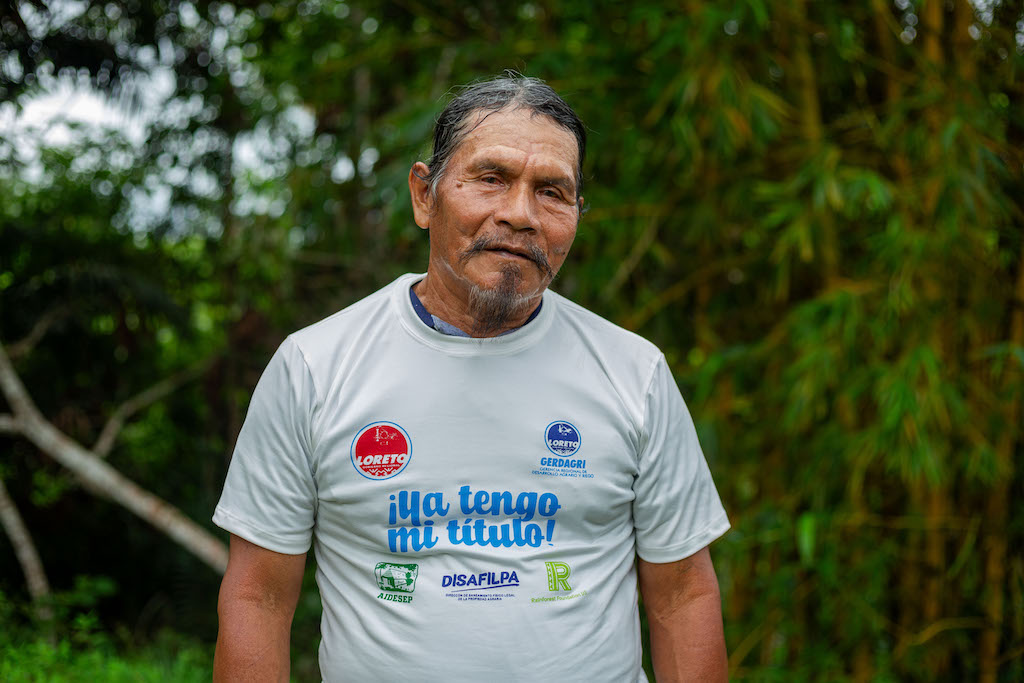
“Today we can say that our lands are indeed ours, and we can defend ourselves from any aggression that arrives at our community.”
“Today we can say that our lands are indeed ours, and we can defend ourselves from any aggression that arrives at our community,” said Anibal Oliveira, Indigenous Ticuna leader of the San Salvador community.
Last year, an innovative strategy devised with our partners allowed Rainforest Foundation US to secure more land titles in ten months than in the previous three years. Now, in 2024, we are already surpassing that record. An additional 10,500 acres of titles are expected to be delivered to communities in the same region over the next couple months.
“By providing the tools directly to Indigenous forest monitors, we’ve established a model that not only accelerates land titling but also strengthens communities’ ability to protect their territories.”
Our strategy involved collaborating with the Interethnic Association for the Development of the Peruvian Rainforest (AIDESEP) to create a flexible, Indigenous-led project using maps and satellite technology, and facilitating regional cooperation among neighboring Indigenous groups.
“By providing the tools directly to Indigenous forest monitors, we’ve established a model that not only accelerates land titling but also strengthens communities’ ability to protect their territories,” said Wendy Pineda, General Project Manager of RFUS Peru.
The Power of Legal Land Recognition
Indigenous-titled lands experience less deforestation and protect more biodiversity than any other conservation model, including national parks. Land titles are one of the most effective ways to reduce deforestation in Indigenous peoples’ territory, resulting in a 66% reduction in forest cover loss.
The longer Indigenous peoples are forced to wait for legal recognition of their land, the more vulnerable they remain to illegal loggers, miners, and ranchers who take advantage of the bureaucratic limbo to raze the forest for profit. Now, these 20 communities have the necessary legal recourse to remove any invaders encroaching on their land.
Frontline Defenders
Land titles not only provide a foundation for legal protection, they can also increase the visibility of the threats that Indigenous communities face daily from illegal loggers and other organized crime groups.
In his opening speech during the celebratory event, Jorge Perez, Murui Indigenous leader and president of AIDESEP, noted that many communities in the region continue to face significant threats and need to defend and monitor their lands. Still, he noted, “when backed by a property title, a stronger system of territorial control can be established.”
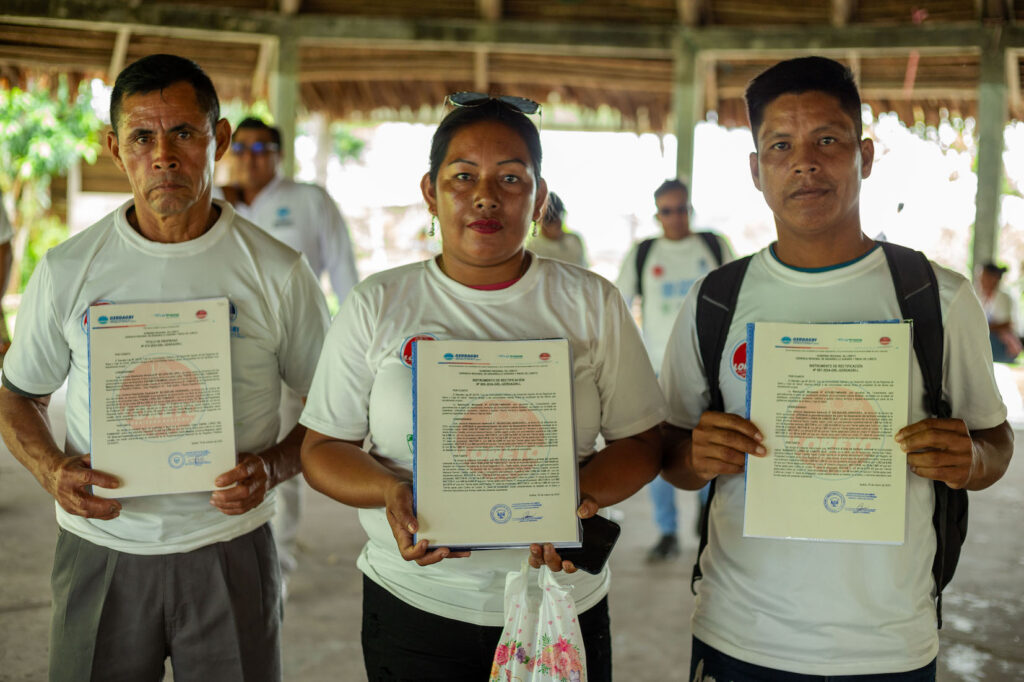
“It’s a mechanism for defense. With our new title, we will now be able to better protect our territory, and outsiders will no longer be able to cut down our forests for timber.”
“It’s a mechanism for defense,” agreed Lenin Saúl Chávez Barbosa, an Indigenous municipal agent of the Puerto Sinaí community. “With our new title, we will now be able to better protect our territory, and outsiders will no longer be able to cut down our forests for timber.”
Change on the Horizon
Over the past two decades, more than 30 Indigenous environmental defenders in Peru have been assassinated while pursuing legal recognition to protect their forests. Meanwhile, those in isolated Indigenous communities continue to face frequent violence from intruders who exploit the most remote regions to act with impunity.
But justice is on the horizon.
On April 11, following a decade-long legal battle, a Peru court condemned the murderers of four Indigenous land defenders in a landmark trial. And on May 22, the Peruvian government passed a law protecting nearly 1.3M acres of rainforest that is home to several Indigenous groups in isolation. Rainforest Foundation US and sister organization Rainforest Foundation Norway played fundamental roles in securing these respective victories, and our work does not stop here.
“As funding from global climate agreements flows into Amazonian government agencies, it’s urgent to address the human rights violations that threaten those investments, not to mention the lives of Indigenous land defenders on the frontlines,” said Kim Chaix, Interim Amazon Director at RFUS.
Looking Forward
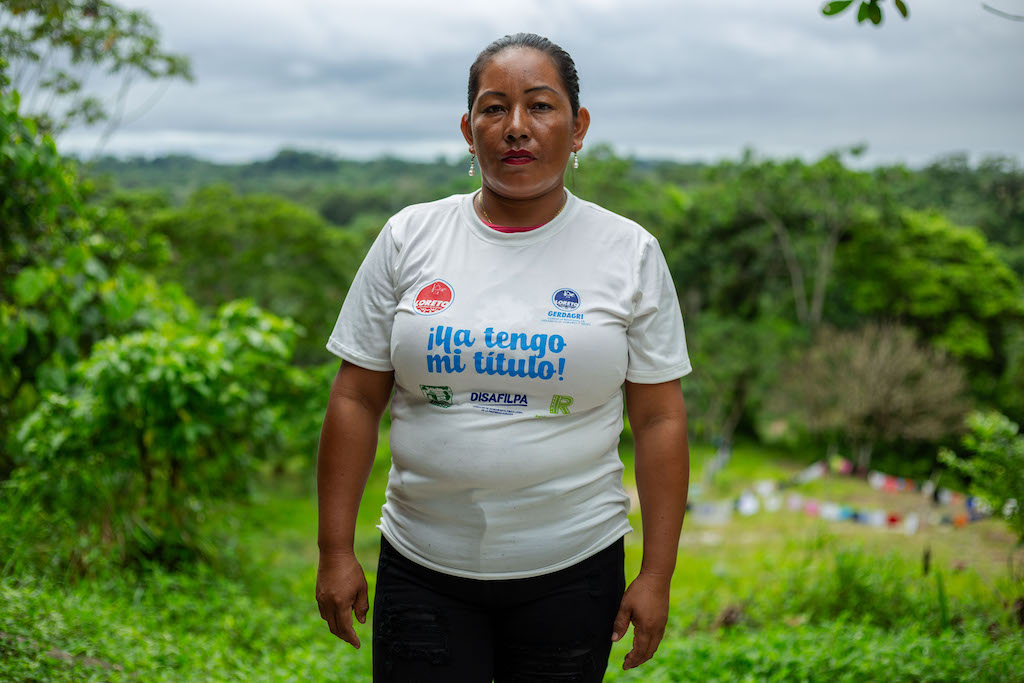
“Our parents died without seeing the titles. But now I feel very proud bringing this document to my community.”
Oliveira was pensive after the ceremony had ended. “Our parents died without seeing the titles,” he reflected. “But now I feel very proud bringing this document to my community.”
When asked what she would do now, with her people’s title in hand, Ticuna leader Elizette Cruz Ponciano of San José de Yanayacu spoke of a more secure future. “When I arrive home to my community, we will hold a meeting. Together we will decide what community projects we wish to pursue and where we will refocus our efforts.”
With territorial rights secured, communities are better equipped to defend their land, ensuring that their forests and future generations thrive.

